Perception. When you watch a James Bond movie you just know James will show up in a black tux adjusting his bow tie and tugging his jacket to look sharp, kind of like "That's right I'm here. Bond, James Bond!" Actually it's just an actor playing a role of a very cool British Secret Agent. My personal favorites are Sir Sean Connery and Pierce Brosnan.
Here's a photo of my funny friend Michael Weatherly in the infamous pose…
I am Mike Kubeisy. I've been shooting in Hollywood for many years and perception is a huge part on the set. It may look like a wood floor, but it's actually paint on cement. Many times I'll touch something to see what it really is, only to be amazed that it’s not what it appears, but it sure looks good. That actor's character is mean and repulsive, but actually he is a very kind, gracious man. He's acting.
When talent walks on my set, how do I appear?
Am I professional, casual, a bit over the top, maybe tightly wound because of who I'm shooting or the nature of the shot? I want to be confident. I need to be commanding! How does my equipment look? Are the strobes matching, are they making funny noises because the fans are dirty or have been dropped so many times they rattle? Is anything bent or do you have tape holding something together? Is your approach "They function properly, the image should turn out fine." ERROR! Really? C'mon man, how is that perceived?
Being a professional photographer in the Motion Picture Industry is a very cool job, kind of like James Bond. I'm sure if you asked any Special Operative about their job they would say it's very cool, but they would also tell you, it's at a very high cost with all the sacrifices made.
I would like to share about having a commanding presence on the set. Not acting or perceiving to be a photographer, but being one!
Just what does that mean? When I get the call to shoot on any given day, I am always early! I was once told "It is easy to be early, hard to be on time." In Los Angeles that is so true with traffic and any other issues that may occur. My camera equipment is good to go.
Batteries are charged, and I have backup equipment should there be a problem. I suggest having instruction manuals of your gear loaded in PDF format in your phone or tablet.
Nothing is more embarrassing than to have a show's star in front of your camera, and you're not quite sure why it's not working right. This actually happened to me. I was shooting on Crossing Jordan with the star of the show, Jill Hennessy, when my camera would not focus. I tried a few settings and smiled a lot (never let them see you sweat). Finally I just put the lens mode in manual and bypassed all the other settings on that lens (that was the beginning of the end with my Nikon relationship), got the shot and all was good because I knew my gear and was confident with it.
How do you gain confidence? Or since today it's my turn to blog, how do you learn to have a Commanding Performance? Work with some friends, not just good friends who know your quirks, but new friends that you have to engage.
Have your work critiqued but not on Facebook! Try and find a mentor, colleague, or camera club where your work can be critiqued creatively. Shoot then shoot some more. Shoot in situations you're not comfortable with so that you need to practice and think outside the box.
In the early `80s I assisted shooting catalogue fashion for the May Co. You were given 3 rolls of 120 film, that's 12 frames on a Hasselblad camera. The first roll was shot for the Art Director's concept, the second was shot for the Buyer's ideas of the items being photographed, and the third roll was shot for your input. So there was some creativity but it was not all about you. You learned to see differently and light accordingly. The other thing you learned is that when the ad came out and it was your image, you kept your mouth shut and never said "I told you so."
I can teach someone about the camera in about 3 months. Lighting however is a forever education. I'm still learning new tricks with different tools I see used on the set. It's kind of like muscle memory; just keep doing it till it comes naturally.
In baseball you practice, take ground balls, throw it around, get in the batting cage, and hit a few at different speeds everyday to develop the muscle memory.
One of the ways I learn a new technique in Photoshop (when I don't call the Photoshop Guys) is from making mistakes or not being able to achieve what I want to. Then I have to research it, and apply my new technique.
(Great time to plug Photoshop World in Vegas. You will learn a lot! Enough said, moving on.)
If you have an opportunity to go to a workshop or seminar for a couple of days but it might cost $1500, and you don't really have it, what should you do? My stand is you need to learn in order to compete. You have to be on top of your game, know what's going on in the market and industry you shoot in be it photography, lighting or software upgrades. It will also be good to network. Remember your competition will also be there. Find the resources and go.
Here's a great debate: equipment. Do you buy the most expensive, newest model on the market? I would love to; however, I know from my experience that many photographers love gear. They will have a shoot that pays them $2500, and then they go out and buy that piece of new gear for $2400. Soon they're out of business or at the very least selling that gear for pennies on the dollar. I invested in a digital camera, and learned to digitally enhance it with Photoshop. I was one of the first to shoot on the set digitally. Soon I was commanding the set with a digital camera and was gaining the respect of Producers. Not just on one show but many, I was, and still am respected for my digital skills. The shows I shoot on all know that I have all the gear I'll need in working, reliable order.
Do you know what they say about film? It's the stuff on your teeth! Oh how I crack myself up, thank you very much, I'll be here all week, try the veal. Braddo, thanks for the stage. Okay I got this, back to the blog.
I have shot with Alien Bees since `97. They are not the most expensive strobe heads in the market, but I can tell you they are very dependable, and the customer service is fantastic. I just upgraded my strobe heads to the Einsteins in the past year, and thus far I have been satisfied with the gear. My equipment is always functional and reliable.
My cameras and lenses are Canon. This is where I get in troubleâ¦I don't believe in third party glass, and here's why. If there is compromise in any of their glass, why would I take any chance for failure? If the third party lenses were being compared to the manufacturers, why then would I compromise with the standard of the lens? True, Canon L lenses are very expensive, but Canon does not compare their lenses to third party lenses.
I am challenged every day with varying situations and personalities beyond my control. The things I can control, my equipment, I need to know it will function with the support I require. This way when I'm on the set, I can command what it is I'm doing and deal with those that I'm responsible for.
I have had guests on the set with me, and when I wrap, they always graciously ask if they can help strike my gear. If my assistant or I don't put it away, I have no idea the condition it will be in when I need it again. All of my gear is in cases, and each item has its place. If an item is not there, I will know right away because it's not back in the place it needs to be, and I need to look for it.
On a motion picture set my crew consists of a Camera Assistant…
…a Grip, a Make-Up Artist…
…Hair Stylist, and a Set Costumer…
I don't tell them their craft, but I do make them aware of any problems, it could be a crooked tie or a flyaway piece of hair, maybe the make-up is not heavy enough. Not that there's a mistake, but when they were prepping, the talent was not under my lighting. Now when the talent is on the set, it will be seen differently through my camera, and it is my job to bring it to their attention. Lighting is all me. I'm directing the Assistant and Grip on how we're going to achieve the look required. If I don't sound like I have a clue what I'm doing, how will they have confidence in me and be motivated to do their best?
My energy is dictating the flow of the crew. If I'm timid or not confident, it's like the kid who keeps turning out of the batter's box before the pitch even comes close.
One of my assistants, Christine, always wants to rehearse or at the very least go over the shot list and any special equipment that will be used in the shoot. This way she doesn't look surprised or out of control on the set. She is in charge of what she's doing, commanding. Am I making sense yet, are you getting this?
I can always tell a rookie by the way they hold the camera, their hand will be twisted the other way under the lens, not allowing them the stability they get from holding it right. Learn your craft, not just know it, but look it. Convey confidence.
You also need to be personable and approachable. There is always gum on the set. Who wants to discuss something with you if you have coffee breath? It's gross but it is reality. I also find a sense of humor works for me. I said humor not arrogance. I promise you, if you're timid or arrogant on the set, there will be a relief pitcher there in a heartbeat. I have replaced photographers from other shows because they were too demanding or high maintenance. Stay sharp (no pun intended). You can read my first Guest Blog I did for Scott about 3 years ago, about attitude.
I was in Dallas with Scott a few years ago for a Lightroom class. I figured that after dinner the night before the class I could hang out with The Man himself and learn something from him. Scott graciously excused himself and told me that he had to prep and rehearse for his class tomorrow. I'm thinking "This guy does this kind of stuff all the time. Prep for what? You're an All-Star." Then it hit me like a wild pitch, that's why Scott Kelby is an All-Star, he still preps. I had just learned another lesson.
Prepping is so important in gaining confidence. Confidence will gain you more experience.
Experience will allow you to hit it out of the park.
My Friends be Commanding, but be humble, and BE SO GOOD THEY CAN'T IGNORE YOU!
Thanks Braddo and Scott.
From Hollywood I'm Mike Kubeisy.
That's a wrap, fade to black.
You can see more of Mike’s work at 4stills.com, follow him on Facebook and Twitter, and check out his classes on KelbyTraining.com.

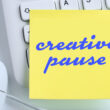

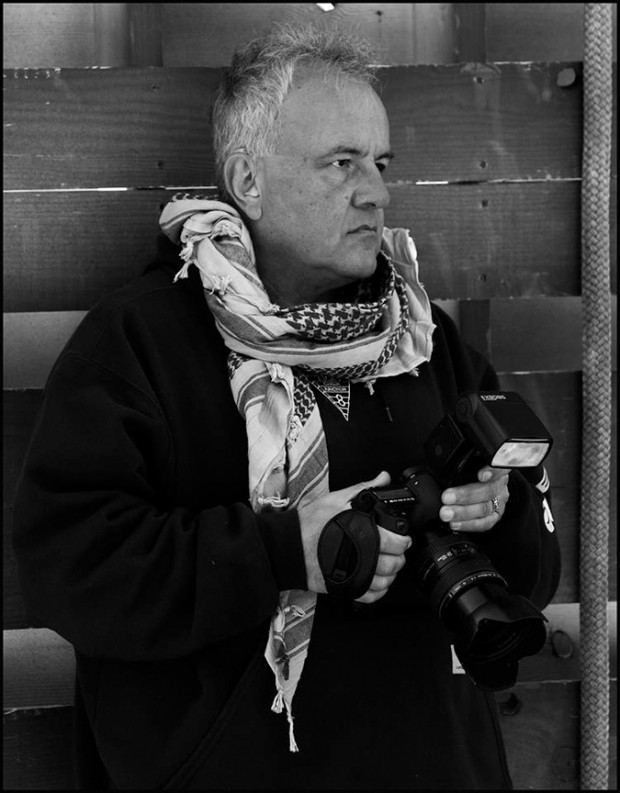
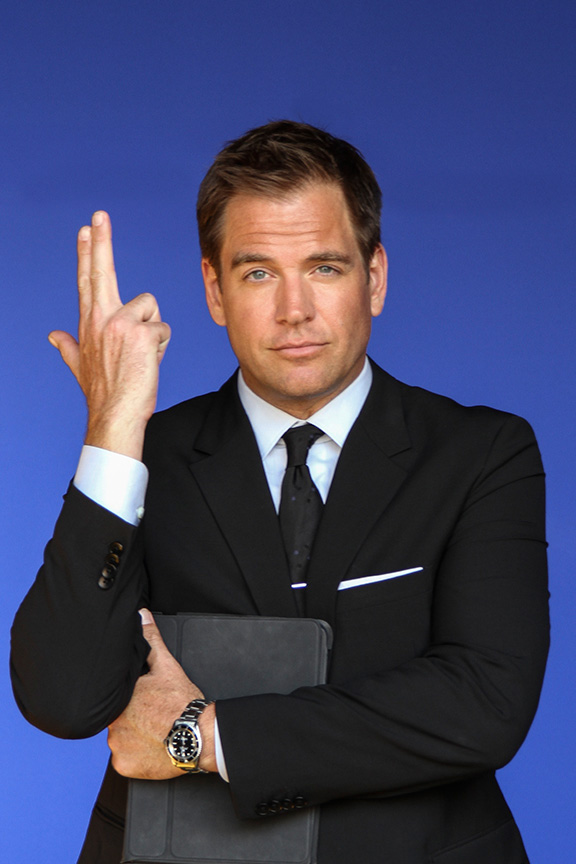
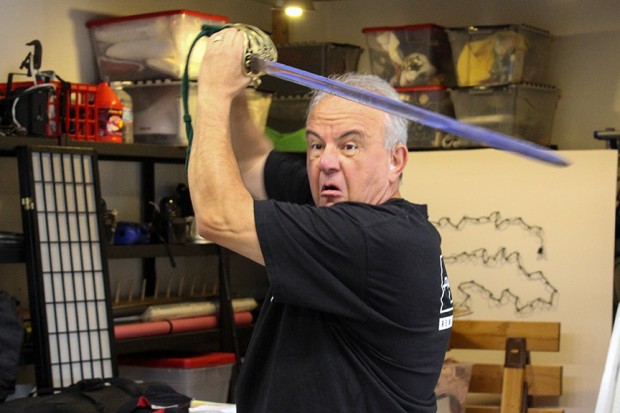
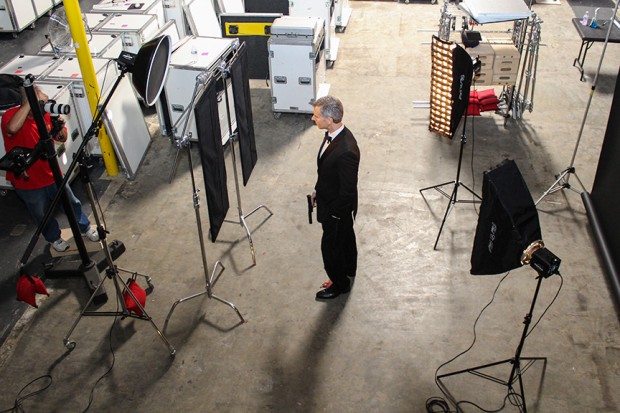
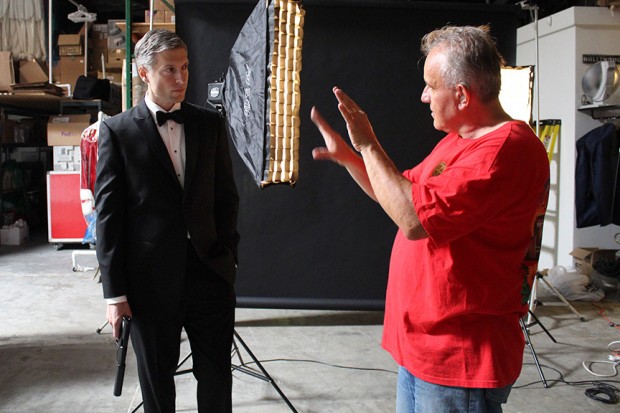
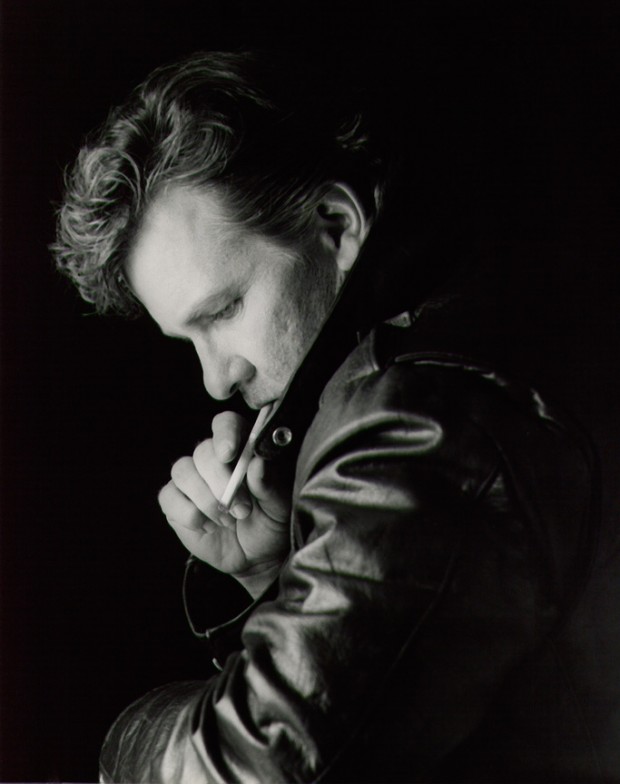
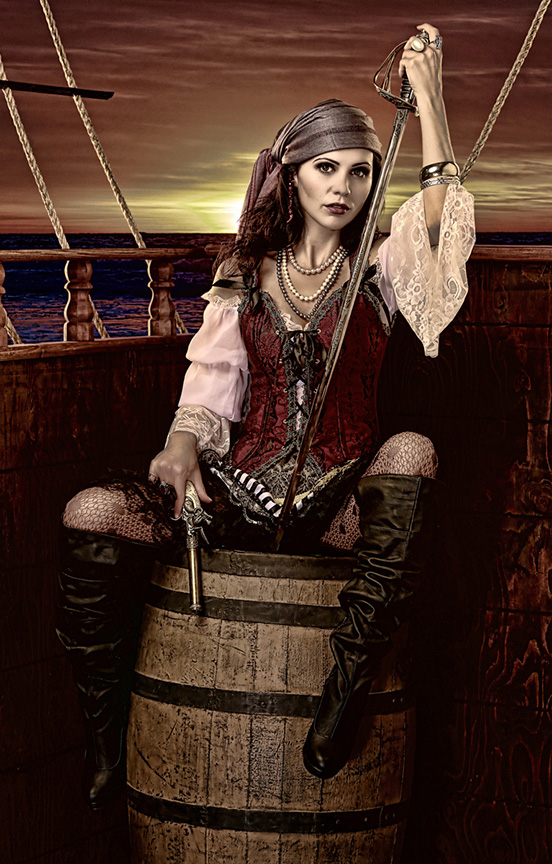
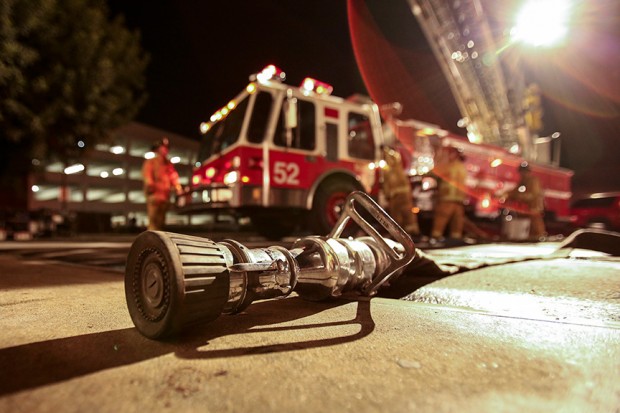
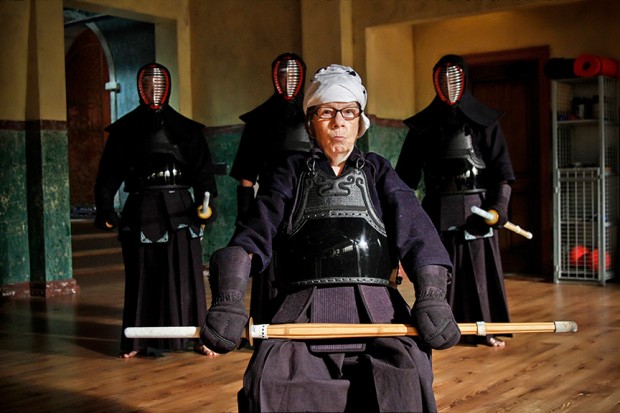
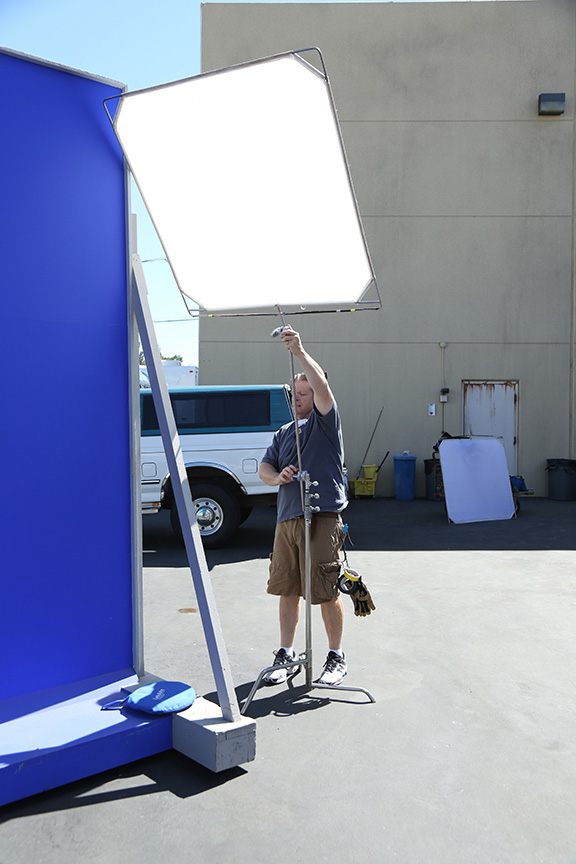
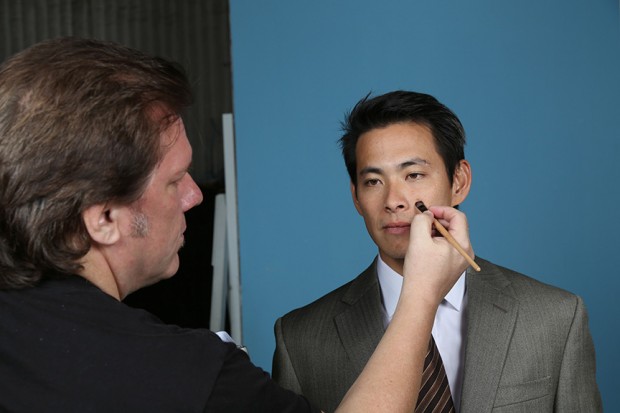
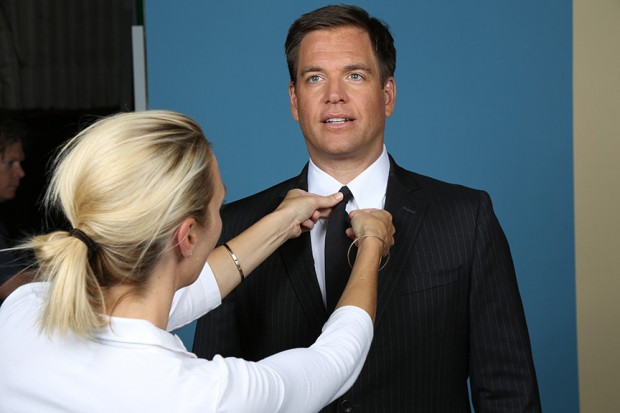
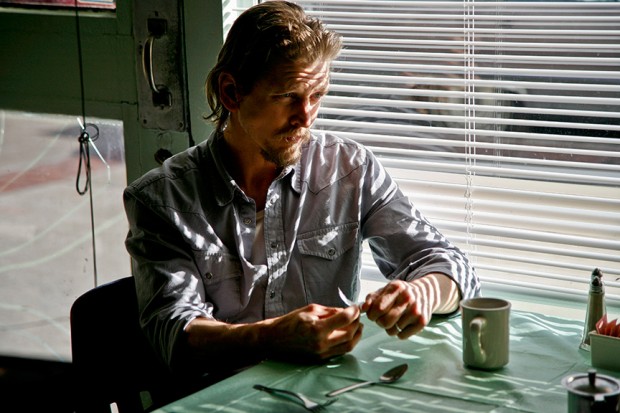
Great post Mike! We also have a similar saying in my office – “If you’re early, you’re on time. If you’re on time, your late. If you’re late, don’t even bother to show up!”
Excellent post Mike! Very commanding performance with Great information! :-) Love your style of Blogging! Really Great info, we all need to take to heart! Thanks for inspiring us!
Dennis
Great post and excellent shots. I do have one complaint though. The picture of the martial arts practitioners. As a long-time kendo practitioner there are a few glaringly incorrect things about the subjects. First, the person in the foreground. No one sits with just the towel (tenugui in Japanese) around their head with the shinai (bamboo sword) across their lap like that. Second, the two on either side in the background have the tare (hip protectors) on backwards. I can understand directing subjects to sit or stand in a particular way to make the photo more interesting but I’m baffled as to why these two mistakes happened. To clarify, I am by no means intending this to be an attack on Mr. Kubeisy but more to correct any misconceptions of kendo. (Coming down from soapbox now)
This may be a dumb question, but I’ll ask it anyway because I need to know: what is your technique for holding the camera correctly to get the stability needed? I fear I am one of the rookies with my hand twisted the other way under the lens. :(
Julie – No dumb questions. When you hold your camera is the back of your hand holding the lens facing down? If yes your doing it right. You are able then to press your elbow into your body for a more stable stance.
I’ve known Mike since high school. He’s the real deal. Hard working, professional, and a kick to be around.
Thanks Charles, I hope to see you at PSW in Vegas my friend.
Great post, great sense of humor, great advise and of course, great images!
Thanks for sharing a slice of your life.
Why exactly doesn’t he like third-party lenses? A few of them (really, just the Sigma Art series) are really, really, really nice.